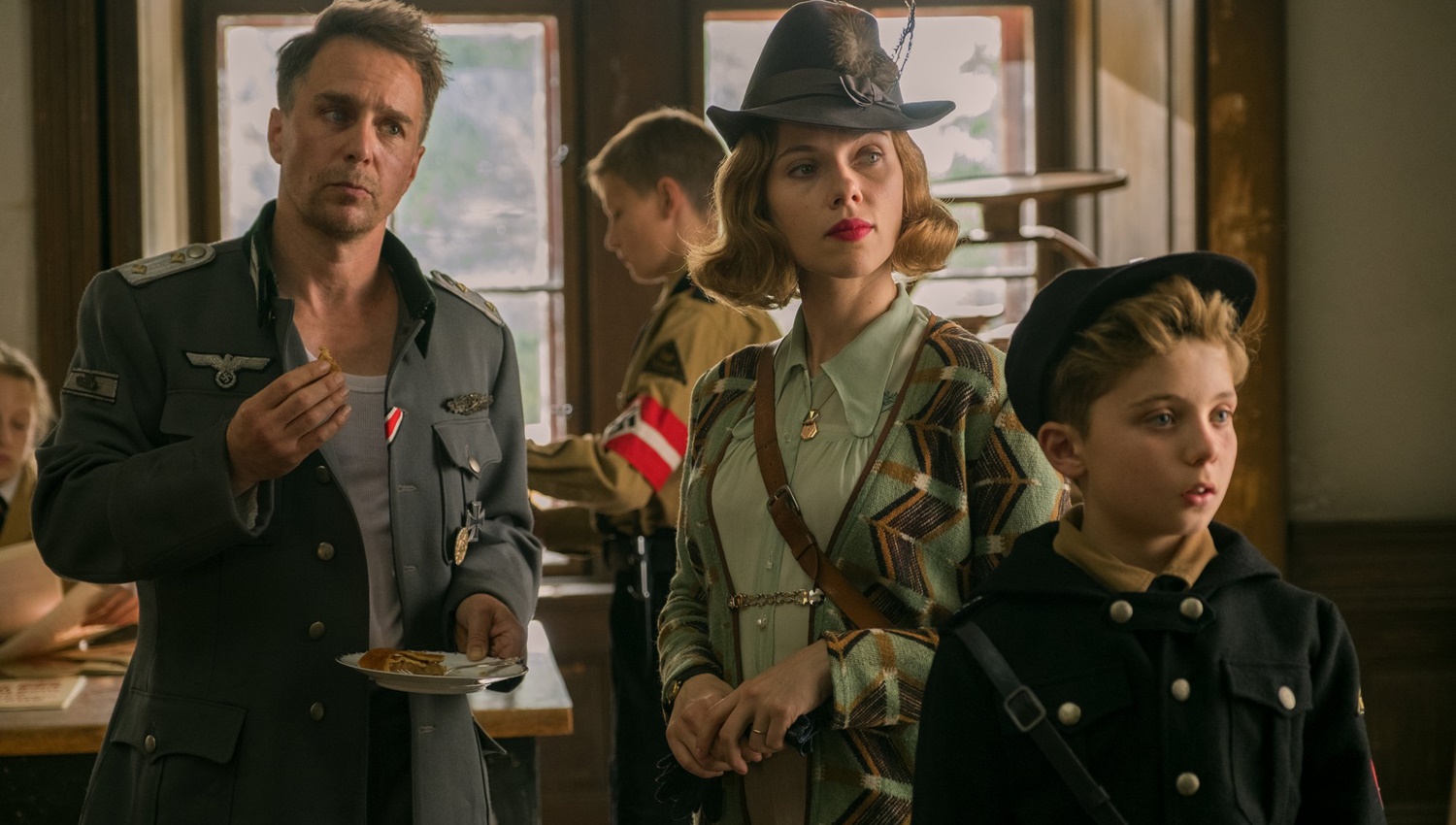
JoJo Rabbit
Dustin Chase
“Heil me,” says Adolf Hitler played by writer/director Taika Waititi in his new film “Jojo Rabbit.” It’s a comedy and a total farce, but does the genuine goodwill at the end of the film justify the means in which the Kiwi director gets there? “Jojo Rabbit” isn’t the first director to poke fun at one of history’s great tragedies, Mel Brooks comes to mind. There also isn’t a question of the script walking the line between what’s offensive and what’s politically correct because Waititi sets that line on fire. “Jojo Rabbit” is “Moonlight Kingdom,” but with Nazi’s. The message to viewers: don’t believe what you are taught if it infringes on others humanity or freedom. Like many of the allegorical films this fall season, “Jojo Rabbit” might deliver sarcasm but its objectives are crystal clear.
With his father off fighting for Germany, Jojo Betzler (Davis) is at home with his mother (Johansson), who wants the war to end as soon as possible. Jojo Rabbit becomes the 10-year-old’s nickname when he refuses to kill a rabbit during his Nazi training. Aside from his love of swastikas and his Hitler Youth uniform, there isn’t much about Jojo that’s evil. He discovers, much to his surprise, that his mother is hiding a Jewish girl in their attic space. Elsa (McKenzie) toys with the naïve Jojo, but quickly gains his confidence, explaining that if he exposes her, his mother will hang. The two become friends as she answers the young boy’s questions about Jewish people. In one scene, he instructs her to draw him a map of where other Jew’s are hiding. She gives him a cartoon drawing of himself with an enlarged head. “That’s where they live, in your stupid head,” she says.
"The script is clever, well thought out and ultimately good-intentioned, but it shouldn’t be hard to understand why audiences might object and find the entire project offensive."
To explain just how ridiculous this movie is, Jojo imagines that Hitler is his friend, allowing Waititi to create the most absurd version of the Der Fuhrer captured on film, since “The Great Dictator.” In one scene he tells the boy he is having unicorn for dinner. The script is clever, well thought out and ultimately good-intentioned, but it shouldn’t be hard to understand why audiences might object and find the entire project offensive. In a scene near the end, Jojo’s best friend explains there are bigger things to worry about now that the war is over. “There are Russians hiding everywhere,” he exclaims. It turns out the ending here does mostly justify the means.
Like most jokes, Jojo Rabbit wears itself thin when the plot gets more focused on the relationship between the two children. Waititi’s Hilter pops up randomly to remind us to laugh and not take anything seriously. However, we come to care about this misguided little boy and his sweet efforts to comfort his new friend, at one point even admitting he is falling in love with her. Sam Rockwell and Alfie Allen are another element of ridiculous levity in the film, but rarely does either have much to do with the overall plot. Rebel Wilson is given even less to do, reduced to those random moments of absurd comedy she is known for. Johansson is the character who has the most depth, but I won’t want to say why.
Final Thought
"Taika Waititi uses shock value and controversy to tell an ironically sweet story. It’s up to each viewer to decide if the ends justify the means."
